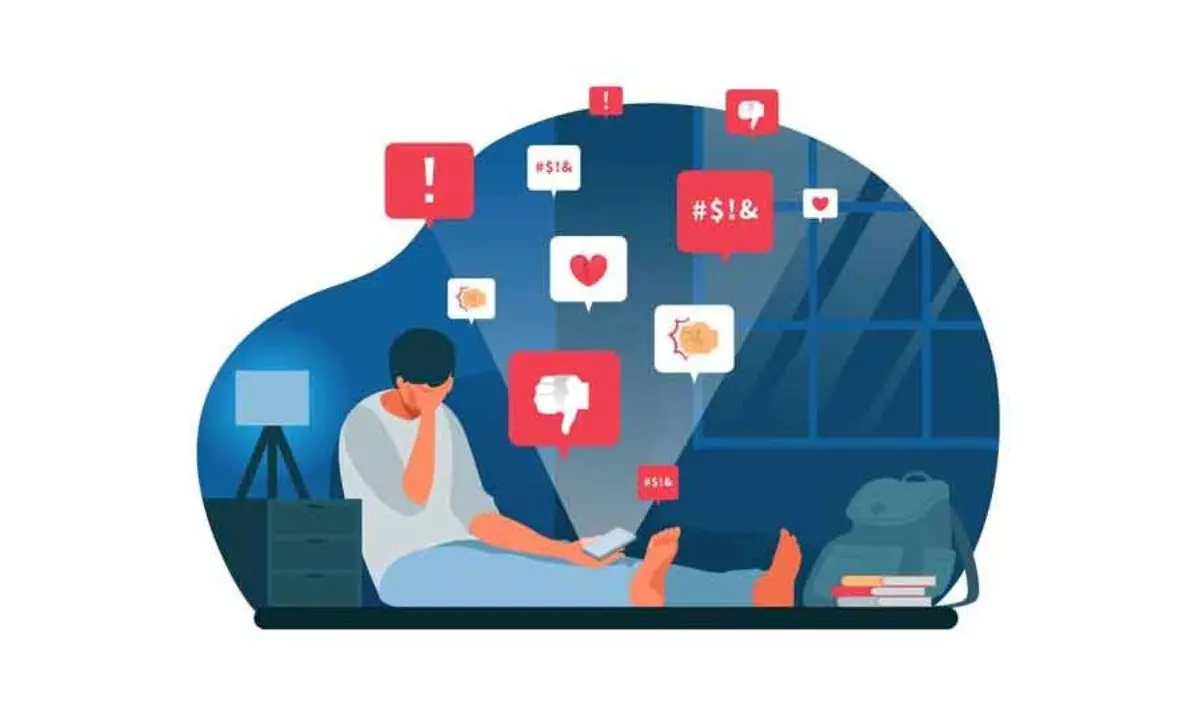Used pragmatically, social media can promote mental well-being

It can help educate adolescents about the importance of mental health
The relationship between using social networking sites (SNS) and mental health is a thriving area of research, which is producing mixed results.
While terms such as ‘Facebook depression’ have gained popularity in the mainstream press, there is not a consensus on the relationship between SNS use and mental health issues such as depression and anxiety. Results from past research hints that age might moderate the SNS/mental health relationship, yet no specific tests of this interaction have been previously reported.
In this study, we examine the relationship by analyzing data from the General Social Survey (GSS). It showed that overall the number of SNSs one uses is positively related to respondents reporting that they have felt like they were heading for a nervous breakdown. While this relationship is positive for respondents aged above 30 years, it was negative for the 18-29-year olds.
First, social media appears to have the potential to promote positive mental health. Second, adolescents frequently utilise social media and the internet to seek information about mental health. Finally, there are benefits and challenges in using social media this way. However, despite the challenges and risks, social media does offer a useful way of educating and reaching adolescents to promote mental wellbeing.
Utilizing social media without harming your mental health requires intentional and mindful engagement. By establishing boundaries, curating a positive digital environment, and fostering genuine connections, you can navigate the online world while prioritizing your mental well-being. Social media should enhance, not diminish, the quality of life and by approaching it with awareness, you can harness its positive potential while safeguarding your mental health.
One potential trigger for mental stress is the use of social networking sites (SNS) such as Facebook, Twitter, Instagram, and Snapchat. Facebook has approximately two billion active monthly users and because of these high adoption rates, there have been a growing number of studies examining the relationship between SNS use and mental health. Some studies have found a direct link between Facebook use and deterioration of emotional well-being. Such differing results from general population studies to those focusing on adolescents/young adults suggest that the relationship between social networking sites and mental health may be conditioned on age.
The growing prevalence of adolescent mental disorders poses significant challenges for education and healthcare systems globally. Providers are therefore keen to identify effective ways of promoting positive mental health.
Mental health in the current scenario faces many challenges. The term “social media” is a part and parcel of day-to-day happenings. It is important to understand its encroachment and extension in our lives.
The biggest boon of use of social media is that it provides quick access to and also mitigates the barrier of distance. The virtual meetings and discussions on digital platform save money and investment of time, which also has distinct positive outcomes specifically for sharing the mutual interests and exploring the possibility of learning new things.
Excessive use of social media is considered to be detrimental for mental health and well-being. The link of social media and increased depression, anxiety, loneliness, and addiction is highlighted by researchers. The burgeoning use of social media, especially by young adults, raises concerns about these negative effects. Depression and use of media has a negatively reinforcing outcome. In fact, the lower response on social network may make a person feel more dejected and it may validate his/her poor self-esteem. Depressive ruminations are associated with more negative and fewer positive social networking interactions, and thereby making people feel more depressed. Sometimes, social media may help in understanding the feelings of a person based on the declared status or self-disclosure, hence its two different perspectives must be considered.
Once social media use becomes part of lifestyle, it becomes almost like a routine to follow. Several studies have linked social media to anxiety and compulsive behavior.
Social media has immense benefits if used with discretion. Social media is pervasive and has infiltrated numerous areas of activity including government, business, commerce, education, and information technology. The harmful effects of social media may have profound consequences for young persons. This area requires continued research globally so that not only the harmful effects are identified but also prevention and treatment is explored. Technology is here to stay. We have to learn to optimise its use and coexist.










